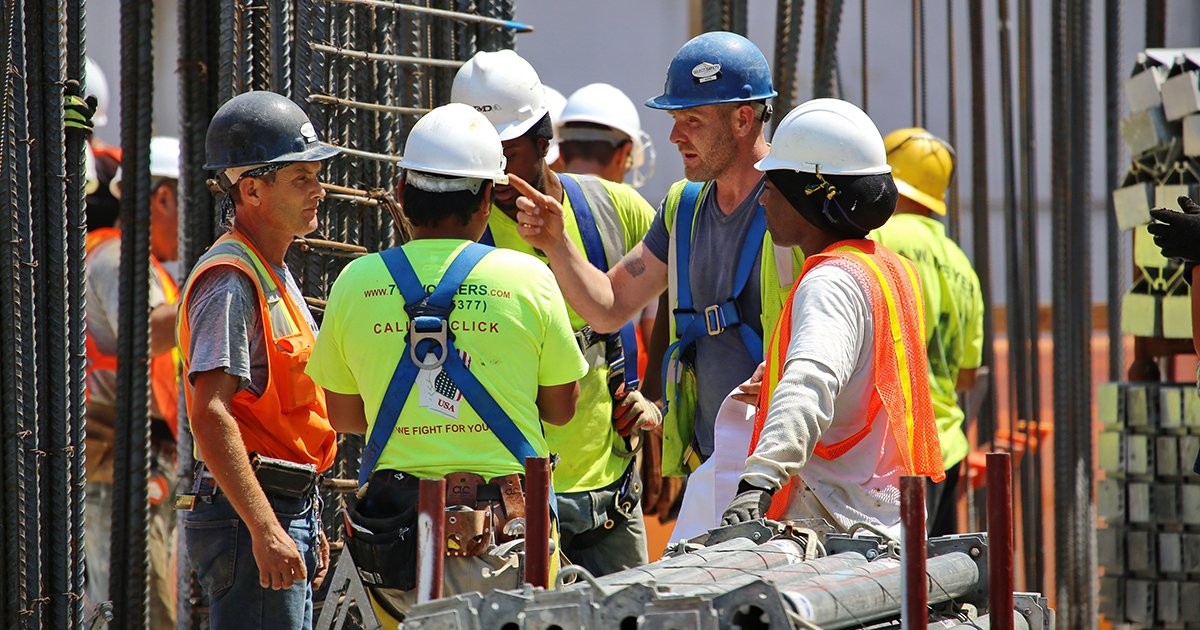Warning: this article contains details about sexual assault.
The shift where she found a gun in a client’s room was the night Lynn decided to finally take some time off.
The employee of Phoenix Society, an organization that provides substance use treatment and other social services in the Lower Mainland of British Columbia, had to lock herself inside the room after finding the gun. Staff on another floor, Lynn said, did not know how to activate the locking system to prevent the client from going back to his room. She waited, locked inside the room, with other staff members for an hour before police arrived, according to an interview, an incident report and other documentation obtained by The Breach.
“That was the last straw for me,” said Lynn, who is being identified with a pseudonym to protect her ongoing employment in the field.
Just the month before, in June 2022, Lynn said a stranger had walked into the Quibble Creek facility and pulled a switchblade on her. Plus, not much time had passed since she hid in the office while someone smashed out the surveillance cameras with a hammer.
These trespassers—there were four in total—got inside because the lock on the building’s front door was broken, according to internal communications and a WorkSafeBC investigation reviewed by The Breach. Staff repeatedly raised the issue with their managers, also warning that if an emergency happened, paramedics and police would not be able to get inside.
But when Lynn first reached out to WorkSafeBC to make them aware of the broken lock, a senior manager from Phoenix Society replied, asking that she keep communications regarding workplace issues “only to internal staff and managers,” according to emails viewed by The Breach.
Lynn is far from the only person with serious concerns about unsafe working conditions at B.C.’s non-profit drug treatment facilities.
The Breach has spoken with staff who say they have been sexually assaulted at work and have lost shifts after raising safety concerns. These dangerous and traumatic working conditions, the workers say, have led to workplace injury and poor outcomes for clients.
These conditions exist on top of work that is already heavy and can be traumatizing. Lynn told The Breach that—in the absence of official data—she started a list of clients who passed away when using drugs again shortly after leaving. Between 2021 and 2023, her list grew to include 11 people.
Despite facing consequences for speaking up, these workers are fighting back with every tool they have: by unionizing, lodging official complaints, or simply finding better places to work.
In response to questions from The Breach about why Lynn was told she should not have contacted WorkSafeBC about the broken lock, Phoenix’s CEO said it happened before her tenure. “Phoenix is subject to and compliant with regulation and oversight including WorkSafeBC,” the email from Justine Patterson said.
Patterson also said that Phoenix Society provides aftercare services to clients from one of its facilities for six months to a year. She did not say whether client deaths are tracked during this period. B.C.’s Ministry of Mental Health and Addictions (MMHA) did not provide an answer when asked whether they will start tracking deaths of people after discharge.
Government standards had little effect on the ground

In B.C. and across Canada, politicians have leaned on recovery and drug treatment programs—coerced or not—as the main solution to the toxic drug and overdose crisis. But little is recorded about how clients fare in these programs, including how many die shortly after completing recovery programs. Nor has much been said about the facilities’ working conditions.
In 2019, then-minister of mental health and addictions Judy Darcy called the recovery sector the “Wild West” in terms of standards of care. In 2021, the ministry published provincial standards for recovery services, which include that staff must be adequately qualified and that management should respond to any incidents that threaten the health and safety of staff and residents.
MMHA told The Breach these newer standards don’t apply to Phoenix. Despite running recovery and treatment programs, Phoenix’s services are licensed under a different act.
Decades of unsafe work
Concerns about the working conditions at these non-profit facilities have been around for decades.
Marcel Rambo met Jason Collett in 2002 when they both resided at Last Door Recovery Society’s original New Westminster location. The two bonded through shared music interests, and Rambo would sometimes play a supporting role in Collett’s band.
“You develop friends in those circumstances, it’s bonding in the way prison can be,” Rambo told The Breach.
After moving to Vancouver Island in 2012, Rambo lost touch with Collett. In 2014, he found out that Collett had been murdered while working as a “house manager” at another Last Door recovery house in New Westminster.
Rambo said he had also worked as a house manager for Last Door in 2002 at the location where he and Collett met. Early in a phase of abstinence from the unregulated drug supply, he said he understood his role to be one of a volunteer. But he alone was tasked with overseeing everyone’s safety during the night shift.
B.C.’s 2021 standards for recovery facilities reaffirmed that it’s OK to leave “senior residents” in charge for the night. It is unclear how many recovery houses still operate this way beyond Last Door.
“Could you imagine an ER ward?” Rambo said. “They say, ‘This guy’s doing the best, we’ll leave him in charge for the night.’”
In addition to being left responsible for everyone’s safety, Rambo said people working as house managers do so at the same location they reside and are going through the early stages of recovery programming, meaning conflict or tensions may exist on a personal level between the house manager and other residents.
“I’m in a house full of people that I live with at that point, and Jason probably was too, in a house with people he lived with and knew, for better or for worse,” said Rambo.
According to the WorkSafeBC investigation into Collett’s death, which was obtained by The Breach through a freedom of information request, Last Door had contributed to working conditions that led to the fatal violence.
“House monitors…are at risk of injury as a result of violence from individuals undergoing treatment for alcohol or drug use. While it is recognized that the nature of this work carries some inherent risk of violence, the employer has failed to minimize this risk,” the report read.
Last Door did make changes and was considered to comply with WorkSafeBC expectations the next month.
MMHA did not provide answers about how the 2021 standards are enforced, if there are any examples of consequences being applied, nor how many staff have been hired to uphold them.
Last Door Society did not respond to a request for an interview about its current working conditions.
Worker says Phoenix failed to provide incident report of her sexual assault to police
In June 2020, during the first tumultuous months of the COVID-19 pandemic, B. was hired to work the night shift at an isolation shelter in Abbotsford, B.C. Phoenix had been contracted by the local health authority to turn a motel into a de facto isolation unit for COVID-19 patients with nowhere else to go.
B.’s clients were unhoused Abbotsford residents who were moved into the motel out of local shelters and encampments because they had suspected or confirmed infections.
“It was super intense,” said B., who is being identified by one initial due to fears about professional consequences. She was typically one of two people on staff overnight. She said her coworkers were often themselves current or former Phoenix clients and drug users.
B. said that management was rarely on-site and workers were left to fend for themselves, trying to care for vulnerable people dealing with a deadly virus.
Eventually, another set of workers did appear at the motel: security guards. Active Security was contracted to patrol the parking lot to prevent break-ins and, occasionally, accompany Phoenix staff during potentially contentious interactions with clients.
B. said the security guards did not make her feel more safe. One guard openly watched pornography during his shift, she said.
B. complained to Phoenix management and Active Security, but nothing was done to stop the behaviour, she said. Another employee who worked with B. at the time confirmed that “everyone complained” to Phoenix management about the security guards’ behaviour, to no avail.
In June 2021, as B. recounted in an interview, a security guard named Kulvinder Singh was asked to accompany her and a colleague to respond to a group of people who had barricaded themselves in one of the motel’s rooms.
Without warning, B. said, Singh sexually assaulted her. “He walked up behind me like we were in a relationship and he had every right to touch me,” she said. “There was no hesitation.”
After reporting the incident to her coworker and manager, B. filed a report with the Abbotsford Police Department that morning. She took the following night off work but was back at the motel days later.
The Breach has verified through court documents that Singh was sentenced for a lesser charge of assault in 2022. Singh’s lawyers did not respond to two requests for comment.
In the months following her assault, B. was caught between WorkSafeBC and Victim Services, as each tried to shirk responsibility for paying her bills for medication and therapy. As bureaucrats argued over whether her mental anguish was the result of crime or a workplace injury, B. fought her battles alone.
Both her employer and the security contractor failed to provide police with the security guard’s incident report from the night in question, B. said, which would have shown he omitted his participation in the room visit.
In an email to The Breach, Phoenix’s CEO wrote that “Phoenix supported a police report.” But Patterson did not respond directly to clarifications on whether they provided an incident report as B. describes.
The security guard eventually pleaded to the lesser crime of assault and was sentenced to a year of probation—which she believed was not enough. She said that at the time, a Crown prosecutor told her the incident report may have likely improved her case.
B. told The Breach that none of her managers checked on her after the assault or asked how the court process was going. When she tried to talk about it, she said, “They changed the topic or excused themselves.”
She also said she believes she would not have been assaulted had her concerns about the security guards’ behaviour been addressed right away. Phoenix’s treatment of her after the fact made her trauma worse, B. said, leading to a steady degradation of her mental health.
B. believes her treatment is part of a larger problem with unregulated non-profit facilities, where workers’ welfare is sacrificed to chase growth and publicity. “It’s not about the people at all.”
B. left Phoenix in 2023. She was glad to leave the organization behind, but far from ready to give up on caring for people as a health-care aide.
“I really did enjoy my job there,” she said. “As shitty as the other stuff was, I would have continued to work in that field, maybe not for that company, and I would love to again.”
Employee lost shifts after trying to use whistleblower protection

In June 2023, The Breach reported on three deaths and abuse by some staff at Phoenix’s primary drug treatment site.
After The Breach sent questions to the organization, CEO Justine Patterson sent an email to staff on May 31, 2023, saying that “a media story about Phoenix may emerge in the coming days that may impact our organization.” She committed to “ethical standards and legitimate business practices as outlined in the whistleblower protection policy” and strongly encouraged employees to identify any misconduct, according to a copy of the email obtained by The Breach.
Just weeks before this assurance was given, however, casual employee Amanda said her shifts were cut after she reported safety concerns about her workplace. She worked at Rising Sun, a housing site run by Phoenix. Amanda is being identified by a pseudonym to protect her ongoing employment in the field. She had resigned her part-time position on April 5, emails show, but agreed to stay on as a casual employee.
Amanda then sent an email on May 10 to managers, as well as a liaison at Correctional Service Canada (which funds Rising Sun), listing concerns with the facility.
Her concerns included:
- there was no mental health worker on the floor where residents with serious mental health conditions, who had recently left prison, lived;
- clients who were previously incarcerated were breaching their parole conditions by possessing weapons or not taking mental health medications;
- some staff members were engaging in inappropriate relationships with residents.
Six days later, Amanda was removed from Phoenix’s Microsoft Teams system and did not receive any further shifts.
Amanda called Patterson’s actions “contradictory” to what she had encouraged staff to do.
Patterson, the CEO of Phoenix, told The Breach that she received Amanda’s May 10 email and thanked her for bringing concerns to her attention.
“There was then formal correspondence from senior leadership in response to the concerns raised in the May 10th email that acknowledged complaints, concerns and feedback are taken seriously and that we were following up on the concerns including consultation with Corrections Services Canada,” Patterson said.
“As previously stated, we then reviewed, investigated, and addressed the complaints. We have worked closely with Corrections Services Canada to ensure ongoing quality service improvement.”
In her email directly to Amanda on May 31, Patterson wrote she did not consider the complaints to be protected by whistleblower policy, and therefore not confidential.
Lynn also said she raised concerns about residential support workers dispensing methadone, which she believed was beyond their scope. She said she was told by management to pursue this via the Provincial Health Services Authority, who in turn suggested she email Phoenix management (who had just differed her to PHSA).
Union drive gives some workers hope
Like B., Fiona said she was drawn to Phoenix by a desire to help people. In 2015, she started working at Rising Sun, a housing facility in Surrey for men transitioning out of federal incarceration and found the job manageable, meaningful and rewarding.
Around 2018, Fiona said that began to change. The organization became understaffed and new workers who were hired lacked the education to do their jobs, Fiona said. She is being identified with a pseudonym to protect her ongoing employment in the field.
She and her colleagues were suddenly spending more time filling out paperwork than speaking with residents. The overwork was stressful and exhausting for employees; for residents, it was yet another systemic injustice.
“The environment for the guys was really bad. You knew that they weren’t getting observed properly and supported properly,” Fiona said.
As conditions got worse for workers and residents alike, Fiona said she saw Phoenix expand its reach deeper into the Fraser Valley, absorbing another organization as it went.
“It was empire-building—empire-building without supporting what’s already there,” Fiona said.
Fiona and her colleagues became increasingly frustrated with the changes they experienced. They began talking about forming a union to gain a meaningful voice in the workplace.
“Everyone was fed up with the lack of good management and not getting paid properly and going through COVID. Everyone thought and said, ‘OK, let’s do it.’”
Fiona hoped that unionizing would make workers want to stay at Phoenix for the long haul, instead of leaving for other jobs that offered better pay, benefits and conditions. If workers were compelled to spend years, or even a career, at the Phoenix facility, the residents would benefit.
Workers organized, took a vote and became members of the Public Service Alliance of Canada in December 2021 after a Labour Relations Board dispute with Phoenix.
However, the union never reached a contract with Phoenix. Last year, a sudden government order made Phoenix an affiliate member of a larger employer association, changing the dynamics of bargaining to include all workers, not just those employed at Rising Sun.
Patterson told The Breach that workers have now joined British Columbia General Employees’ Union and will be fully unionized next month, a change she said the organization welcomes.
Rising Sun staff still await the fair contract they organized for in 2021.
Better possibilities
Amanda described her new workplace, within the same field, as better in almost every way.
She describes client caseloads of roughly five people per staff member, in a program where workers can leave the site to support people integrating back into day-to-day life. And they have time to build relationships with clients in the program.
“We understand there will be relapses and things like that—but how will we work with you to help you succeed?” she said of the organization’s attitude.
The Breach asked if she had any regrets about expressing the concerns that led to her departure from Phoenix Society.
“None,” she said.

